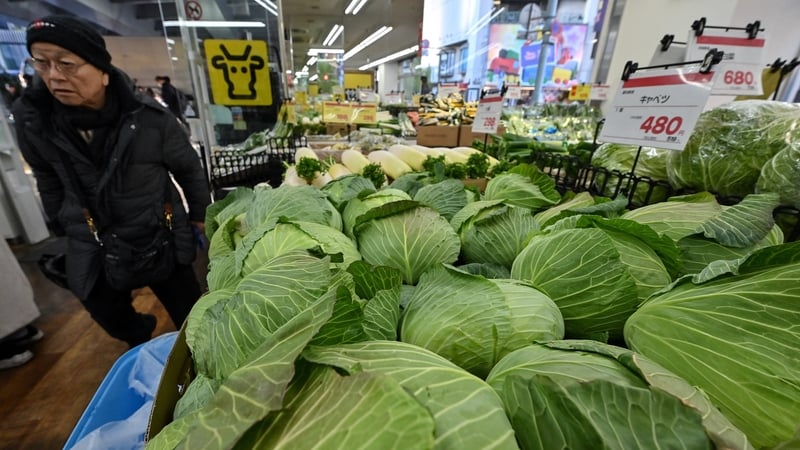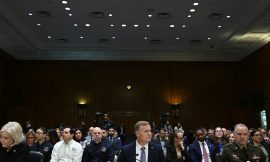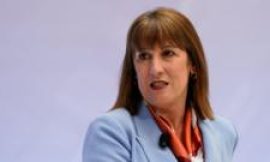Japanese inflation accelerated in January, further pressuring households as prices excluding fresh food rose 3.2% on-year, government data showed today.
The rate was the highest since June 2023, fuelling speculation over the timing of the Bank of Japan’s next interest rate hike as it retreats from years of aggressive monetary easing to boost the moribund economy.
January’s core Consumer Price Index (CPI) was above market expectations of a 3.1% rise, accelerating from 3% in December, the internal affairs ministry said.
Overall, inflation including volatile fresh food was up 4% year-on-year – among the highest in the G7 – and speeding up from 3.6% in December and 2.9% in November.
The price of cabbage almost tripled in January, in what local media have dubbed a “cabbage shock” after last year’s record summer heat and heavy rain ruined crops.
The price of rice also soared more than 70%, today’s data showed, while electricity bills jumped 18%.
Last week, the government said it would release a fifth of its emergency rice stockpile after poor harvests and panic-buying over a “megaquake” warning pushed up the cost of the staple.
Japan has previously tapped into its reserves during disasters, but this was the first time since the stockpile was created in 1995 that supply chain problems have prompted the move.
The Bank of Japan raised interest rates again last month, having done so in March 2024 for the first time in 17 years.
It is gradually normalising monetary policies after years of efforts to counter Japan’s “lost decades” of economic stagnation and static or falling prices.
Finance Minister Katsunobu Kato warned today that higher bond yields could pressure government spending, because it means paying more for servicing Japan’s huge government debt.
His comments reminded traders “that the Bank of Japan isn’t operating in isolation – it’s still tethered to the Ministry of Finance, which has its own set of concerns”, analysts said.
“Most economists expect the next BoJ rate hike to land in the summer, but the market isn’t entirely convinced.”
This week, gross domestic product (GDP) figures showed that Japan’s economic growth slowed sharply last year, although the rate for the fourth quarter topped expectations.
It comes as companies fret over the impact of US President Donald Trump’s tariffs and other protectionist trade policies on the world’s fourth largest economy.
Japanese media reported yesterday that the trade minister is arranging a visit to the US to seek exemptions from the tariffs.




